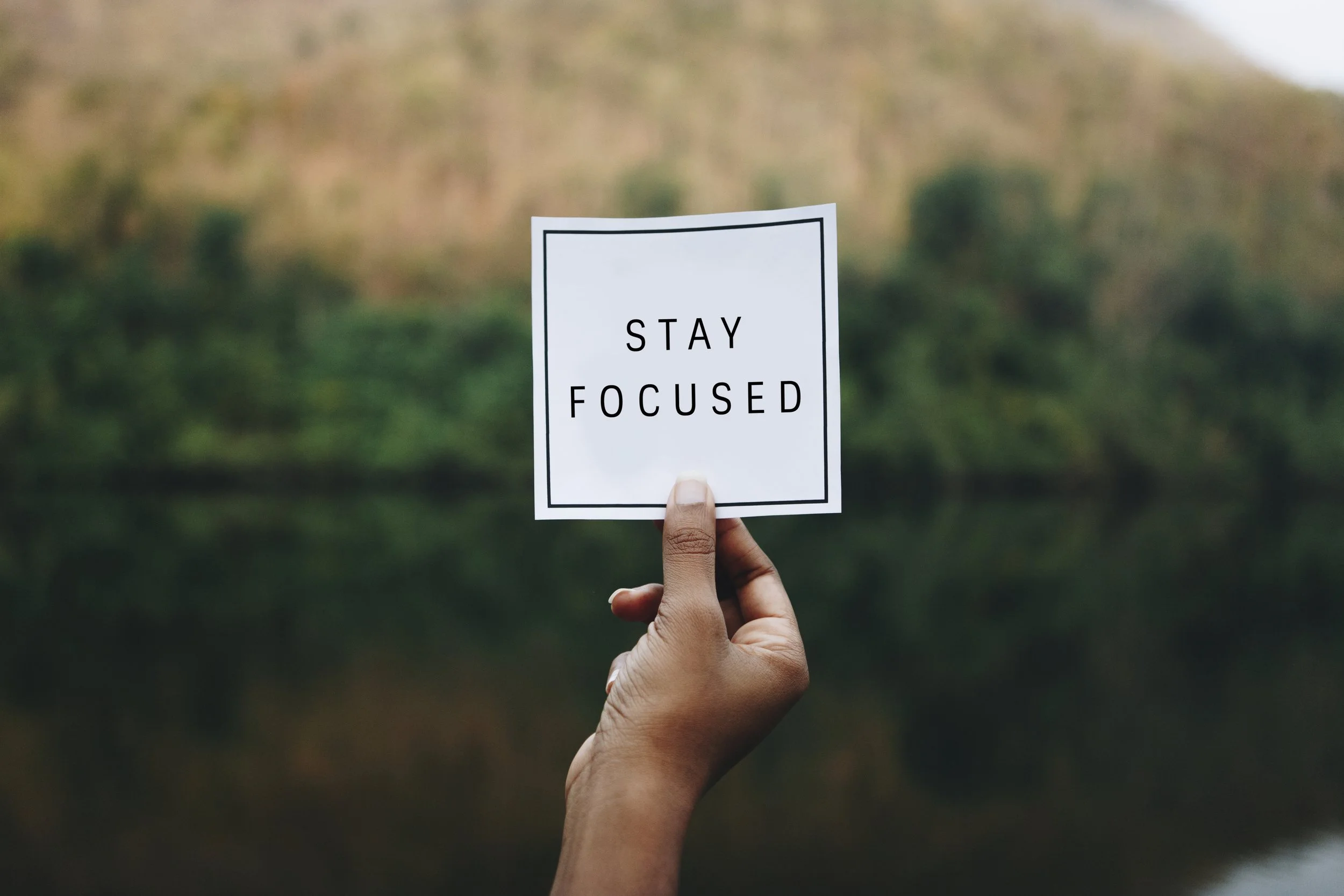9 Tactics to Help You Overcome the Fear of Death
Summary: The article explores nine practical ways to ease the fear of death, including gratitude, purpose, creativity, and honest conversations. It reframes death as a natural part of life, not its enemy. Through reflection, humor, and mindfulness, we can live more fully. Fear may not vanish, but it can transform into a companion on the path to meaning.
Why Death Is So Hard to Talk About?
I'm not sure when the fear of death first took hold—maybe in childhood, staring at the ceiling with unanswered questions, or later, watching loved ones grow frail. What I do know is that death is universal, but rarely spoken of. It shapes our choices quietly, from what we avoid to what we chase.
Avoiding the topic only deepens the fear. So I want to learn how to overcome the fear of death. I devised nine grounded, practical ways to reshape how we relate to death and life.
Let's begin by learning to live alongside it. If you are having questions like:
How to stop thinking about death?
How to remove the fear of death?
Why am I so scared of death?
How to overcome the fear of death?
9 Tactics to Help You Make Peace with the Fear of Death
1. Let the Fear Motivate Healthier Living
When I began to overcome fear of death, I found it oddly energizing. That fear nudged me to make small but lasting changes, not necessarily add years, but to infuse my days with more presence.
Healthspan became more important than lifespan. I started asking: Am I living well, or just staying alive?
I walk more, sleep better, and say no to burnout and yes to deeper social connections. Of course, there's research behind this movement; nutrition, sleep, mindfulness, and meaningful relationships all promote longevity and mental clarity. And while these healthy habits make a powerful difference, it’s also important to know when should someone talk to a mental health professional about unwelcome thoughts or emotions? Recognizing that point can be just as vital for long-term well-being as physical health practices.
But it's more than science. It's a quiet commitment: I can't escape death, but I can soften its approach by choosing to live consciously.
2. Notice How Age Reduces Fear Over Time
I’ve watched my parents grow older, and what strikes me most isn’t their physical change, it’s their emotional shift. The urgency, the panic, the what-ifs have softened into something else: acceptance.
It didn’t happen overnight. It came through life experience, spiritual exploration, marriage and couples counseling, and dozens of small reckonings. Exposure breeds familiarity—and familiarity, in time, eases fear.
As Mary Roach wrote, "I don't fear death, I fear its prologues..." Aging, then, is not just decline. It's insight, preparation, and an invitation to detach from the ego's panic and embrace something deeper.
And that gives me hope.
3. Cultivate a Daily Gratitude Practice
Gratitude and fear cannot stay together for long. I've witnessed this myself. On the days when I take time to say, "I'm glad I'm here," death is less of a threat and more of a far-off friend.
Gratitude soothes the nervous system and reprograms nervous loops. I practice simple practices: writing down three positive things, telling my partner that I appreciate them, and observing the morning light on the wall.
It's not pretending everything is fine. It's remembering what still is. Gratitude does not erase fear, but it waters down its strength.
4. Create a Living Legacy
Legacy used to feel abstract, like something for the rich or the wise. But then I read about Swedish death cleaning—a gentle, practical act of organizing one's belongings so loved ones aren't left with chaos.
It moved me.
I cleaned out the drawers and wrote letters I'd been postponing and forgave. I wrote a will—not out of dread, but out of care.
A living legacy isn't about legal prep. It's emotional and spiritual, as well as the stories you share, the apologies you offer, and the lessons you leave behind.
5. Keep Your Purpose in View
Whenever I drift too far into fear, I return to purpose. Not the flashy, performative kind—but the quiet kind that sustains me: helping someone grow, listening deeply, creating spaces for healing.
Purpose doesn't erase mortality; instead, it contextualizes it.
Psychologist Sonja Lyubomirsky found that people who live with purpose report lower death anxiety. That resonates with me. When I know why I'm here today, this hour, I'm less afraid of when I won't be.
Every week, I take one small action aligned with that purpose. That's it. There are no grand missions, just steady, meaningful movement.
Also Read - How to Start Finding Purpose and Meaning in Life
6. Express Yourself Through Creativity
We often confuse creativity with talent. But I've come to see creativity as a legacy in motion.
I've written messy journal entries, painted things no one will hang, and planted flowers that may outlive me. I've recorded my thoughts, shared memories, and laughed over old photos with family.
These are the ways we say: I was here.
Creativity gives shape to presence. It's symbolic immortality. Whether through words, art, business, or gardening, it all matters. It all leaves a trace.
7. Let Death Sweeten the Taste of Life
I love a quote: "It is from some obscure recognition of death that life draws its final sweetness."
I didn't truly understand that until I lost someone I loved. After the numbness passed, colors seemed brighter. The ordinary became a gift.
The Japanese concept of ikigai—living with purpose and joy—echoes this idea. Fear decreases when I combine why I wake up with the joy of waking up.
The archetype of the Sage teaches us to savor, notice, and reflect. Living like that makes me less focused on what ends and more present with what is.
8. Talk About Death with People You Trust
The first time I brought up death with a friend, it was awkward. I think I said something like, "Hey, I've been thinking about...the big stuff." She paused. Then she said, "Me too."
That conversation changed us both.
We need safe spaces to explore mortality, not in crisis but calmly. I've participated in "Death Cafes"—casual, open circles where people share stories, fears, and questions.
Talking doesn't summon death. It disarms it.
If you want to begin, try this: "I've been thinking about what matters. Would you like to talk about it with me?"
You might be surprised by what opens up.
9. Lighten the Mood with Humor
Someone once said, "Life is like toilet paper—longer than you think, but over quicker than you want." I laughed, then paused.
Humor doesn't trivialize death. It softens its edge. I've found joy in dark comedies, awkward funeral stories, and writing my own (terribly funny) obituary.
Laughter is psychological armor. It builds connection and reminds us we're all in this together—and none of us are getting out alive.
Next time you're spiraling, try this: Watch The Good Place, read Nora McInerny, or write the most ridiculous eulogy for yourself you can imagine.
You'll feel better. I promise.
Beyond the Tactics: Rewriting the Narrative of Death
Reframe Death as Part of Life, Not the Enemy of It
The more I’ve sat with my fear, the more I realize: I’m not afraid of death—I’m afraid of parts of myself I haven’t integrated. In Jungian psychology, especially when exploring Jungian archetypes through individual therapy, death is symbolic. It represents the death of ego attachments, outdated roles, and unlived potential.
When I ignore those inner deaths, I panic. But when I honor them, something shifts.
Jung called his life's work "a preparation for death"—not as a morbid ritual, but as a return to the Self. In that view, death isn't failure. It's a transformation.
One of my teachers guided me through a meditation on my death. It wasn't frightening and was liberating.
When I stop resisting death, I stop resisting life.
Normalize and Humanize the Fear
Let's be honest: The fear doesn't vanish. It evolves and becomes a companion rather than a tyrant.
I don't need to glamorize death to respect it. I don't need to conquer it to live well. I just need to make peace with its presence—like a familiar passenger, not the driver.
I've softened my fear and learned to live more aligned through gratitude, purpose, creativity, humor, and real conversation.
That's what Jungian therapy has offered me: not answers, but integration. A way to meet life and death with the same courage.
Dr. Bren's Perspective — From Fear to Readiness
If you're sitting with fear—or the questions behind it—I invite you to reach out.
As a Jungian and psychosynthesis therapist, I help clients with individual counseling sessions to explore the symbolic, the soulful, and the shadowed. Together, we create space for healing, legacy, and meaning. Death isn't the end of the story. Sometimes, it's the beginning of a more authentic one.
Whether you're navigating a personal turning point, processing loss, or simply want to live more fully, individual counseling offers a guided, compassionate path forward.
Book a session or learn more at Dr Bren
Let's walk toward wholeness—together.
About the Author, Dr Bren:
Dr. Bren Hudson is a holistic psychotherapist, life coach, and couples counselor specializing in Jungian depth psychology and spiritual transformation. With a PhD in Depth Psychology from Pacifica Graduate Institute, she integrates Jungian analysis, Psychosynthesis, and somatic practices to help clients uncover unconscious patterns, heal trauma, and foster authentic self-expression. Her extensive training includes certifications in Internal Family Systems (IFS), Emotionally Focused Therapy (EFT), HeartMath, Reiki, and the Enneagram, as well as studies in archetypal astrology and the Gene Keys. Formerly a corporate consultant, Dr. Bren now offers online sessions to individuals and couples worldwide, guiding them through personalized journeys of healing and self-discovery.
Connect with Dr. Bren:
FAQ's
Is it normal to fear death, even if I've lived a good life?
Yes. Even a meaningful life doesn't erase the unknown. Fear of death is deeply human—it reflects our love for life, not failure to accept it.
What's the difference between lifespan and healthspan?
Lifespan is how long you live. Healthspan is how well you live physically, mentally, and emotionally during that time. It's the quality, not just the quantity.
How do I talk to my family about death without making it uncomfortable?
Start gently. Try, "I've been thinking about some important things—can we talk about it?" Vulnerability invites honesty, not discomfort.
What if I don't have a strong sense of purpose right now?
That's okay. Purpose can be simple—like being kind, mentoring someone, or creating beauty. It unfolds through attention, not pressure.
How can I start reducing my fear of death today?
Begin with one small action: write down three things you're grateful for. Gratitude grounds you in life and gradually softens fear.
Need Help? Contact Dr Bren
Animate your Soul for Life!
Send me a message right now to get started on your soulful journey. Together, we will create a coaching plan that is unique and perfect for you.
DR BREN | Buddhist and Jungian Psychology
207 Wendover Ln, Durham, NC 27713, United States
Mobile +1 919-407-0999 Email Bren@drbren.com




